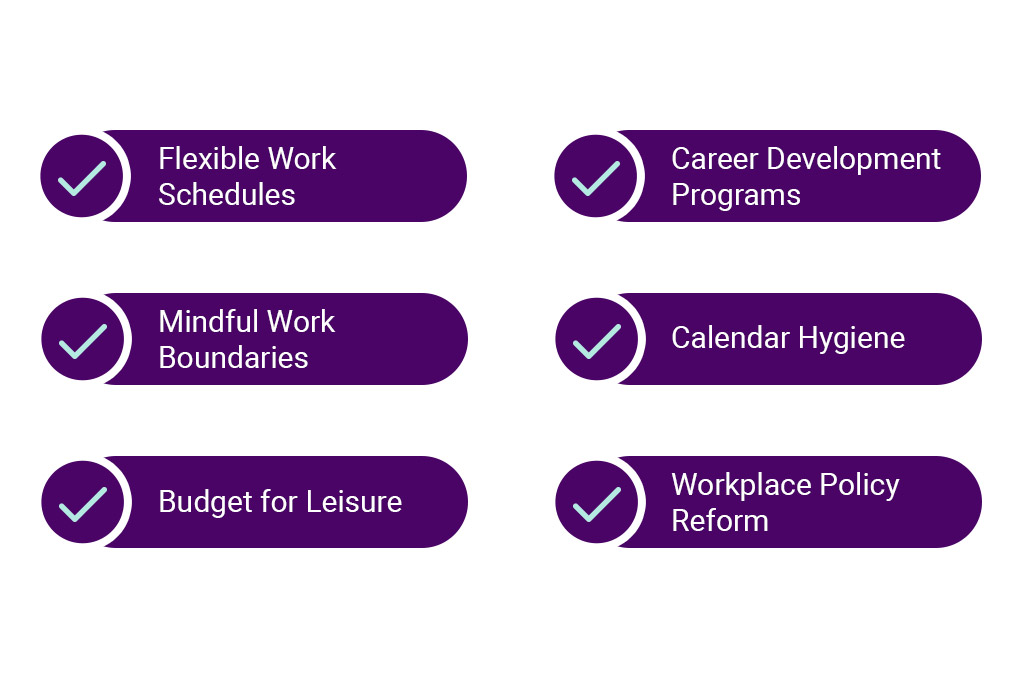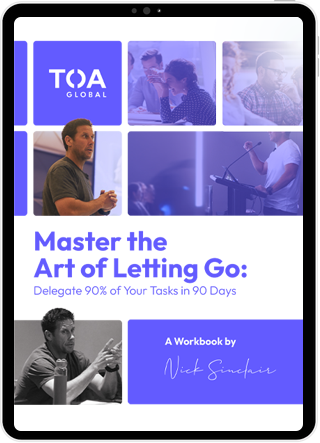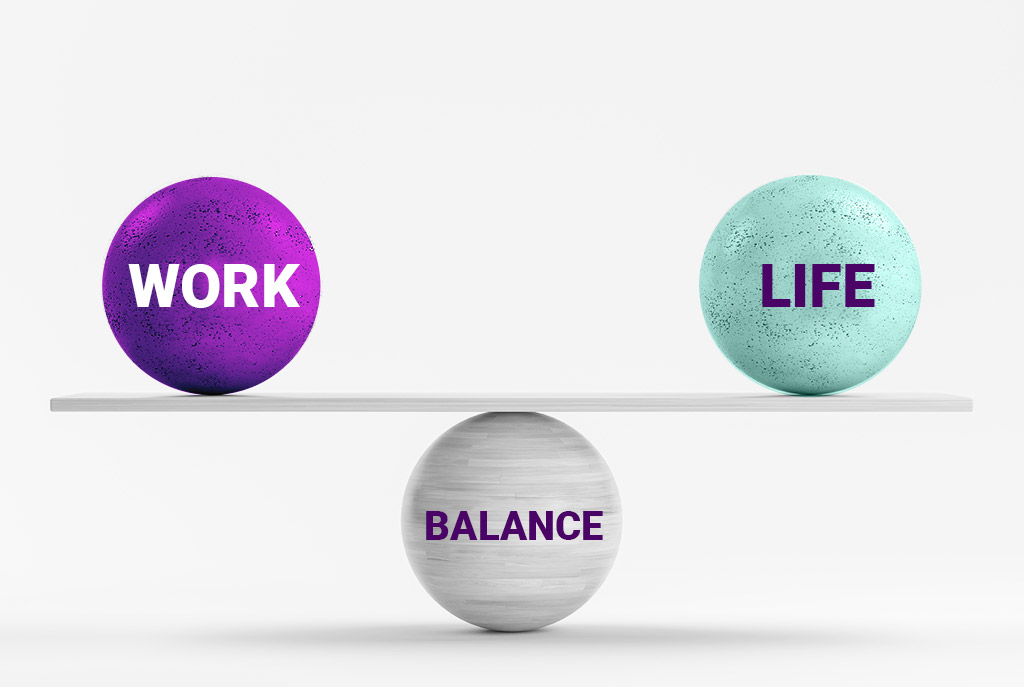An Overview of the Best Accounting Work-life Balance Practices
- Flexible Work Schedules
- Career Development Programs
- Mindful Work Boundaries
- Intentional Calendar Hygiene
- Budget for Leisure
- Workplace Policy Reform
Burnout hits close to home for most accountants. Especially during busy periods like tax season or fiscal year end close, accountants are expected to power through the hubbub of tight deadlines, client demands, and the mountain of workload that’s in front of them.
No matter how resilient your staff is, the job often demands time and energy they can’t get back. When they realize this, they don’t just burn out but opt out for good.
Fortunately, there are many highly effective and sustainable ways to keep this en masse turnover from happening—and it all starts with smart, intentional changes.
Table of Contents
The Best Burnout Buffer: An Accountant's Work-Life Balance

Accountants deal with chronic stress and high-pressure environments all the time—so much so that some might argue work-life balance has no place in the profession. But we see it differently. In fact, we’re prepared to tackle a question that often goes unanswered: What does good work-life balance truly look like in a field as demanding and dynamic as accounting?
Good work-life balance in accounting means the ability to meet professional goals without sacrificing health, family, or personal fulfillment. It’s all about flexibility, energy, and sustainability, not perfection. Some may assume it’s oxymoronic, but we’d like to think that an accountant’s professional and personal life can be integrable without one invading the other.
This balance is what separates sustainable productivity from burnout.
Common Industry Challenges that Accountants Face
There’s no denying that accounting is inherently demanding. Challenges like tight deadlines, heavy workloads, constant regulatory changes, and an unrelenting need for precision seem to be ever-present. Because this pressure rarely lets up, even the most committed professionals will feel the toll over time.
Accountants spiraling into stress, extended hours, and burnout are often mistaken as simply part of the job. This, then, leads many to question if work-life balance is truly achievable in the field.
The truth? Balance is possible, but only with a thoughtful, proactive approach. Without leadership support and intentional change, the cycle continues—and with it comes the risk of losing your most valuable talent.
How Poor Work-Life Balance Impacts Talent Retention
You may be wondering why top talent—both within and outside your firm—is walking away from a career they once chose. The answer isn’t unique to accounting: It’s rooted in a broader work culture where the line between professional and personal life has blurred so much that we’ve forgotten it shouldn’t be.
In pressure-heavy fields like accounting, long hours and constant availability have become the norm, often at the cost of sleep, family time, and personal fulfillment.
Even with solid compensation, many accountants are questioning whether the trade-offs are worth it, and for a growing number, the answer is no.
This shift may concern firm owners, which will ultimately lead them to rethink their existing policies. After all, it’s worth exploring how meaningful work-life balance can transform not just retention but the lives of other people, too.
The Many Benefits of Good Work-Life Balance
In the tug-of-war between the grind and downtime, the real goal is finding that middle ground. That’s the balance every professional wants, especially overworked, number-crunching accountants.
Strong work-life balance doesn’t just improve job satisfaction; it also strengthens retention—because when accountants have space for things like family or personal interests, they return recharged and ready to stay.
Stepping away from work, even just for a bit, builds clarity and energy that makes people show up better during the week. In the long run, it’s this balance that keeps them engaged, motivated, and willing to stay.
So, how can firm owners make this balance part of how their firm truly operates? Start by integrating a healthy work-life balance culture into your firm, which can go a long way in building trust, connection, and loyalty among your employees.
After all, people feeling cared for beyond their deadlines and deliverables makes them show up differently—they do their jobs better, bounce back from stress faster, and collaborate more!
6 Proven Practices to Enhance Work-Life Balance for Accountants

When work-life balance is prioritized, accountants get a sharper focus, greater efficiency, and higher-quality output. As we’ve mentioned, it also fosters long-term retention and reignites a sense of purpose in the work itself.
However, achieving that balance requires more than just good intentions. It requires actionable and sustainable changes that create breathing room, set healthy boundaries for both firm owners and accountants, and provide a space for everyone to thrive in a field that often demands too much. Below is our list of the six best practices for accounting work-life balance.
1. Flexible Work Schedules

Forward-thinking leaders know that supporting team members is key to building a thriving firm. Prioritizing your accountants doesn’t come at the expense of the business—it’s what helps sustain it! When implemented correctly, flexible work arrangements don’t disrupt your operations but rather lighten the load on your already stressed employees.
For accountants, especially those working in big cities, this means less time lost to traffic, fewer out-of-pocket costs, and sometimes, even workplace noise can psychologically wear your staff out.
Some findings suggest that productivity goes up as much as 50% if workers’ schedules are flexible and that these arrangements are associated with reduced absenteeism and fewer somatic symptoms, benefiting both your accountants’ physical and mental health.
Now, some firm owners have perfectly valid cybersecurity concerns. The key is implementing robust protocols and industry best practices that protect client data while still giving your accountants the freedom and flexibility they need.
2. Career Development Programs

Accountants don’t just want to be stuck reconciling records—they need career development opportunities, too! You should allocate a budget to fund professional development programs for accountants, like technical upskilling courses, leadership workshops, or firm-led programs.
There are courses especially made for career development in accounting that you can explore, including but not limited to:
- Advanced Excel & Financial Modeling
- QuickBooks / Xero Certification
- Data Analytics for Accountants (Power BI, Tableau)
- Accounting automation tools (NetSuite, SAP, or Intuit)
- Cybersecurity basics for finance professionals
- Time and stress management workshops
- Communication and presentation skills
- Team leadership or people management training
- Emotional intelligence in the workplace
- Strategic thinking for finance professionals
Finally, here are some examples of firm-led programs for accountants:
- Lunch-and-learns with industry experts or senior staff
- Mentorship programs for junior accountants
- Job rotation or cross-training to staff exposure to new specialties
- CPE (continuing professional education) credits through internal webinars or workshops
- Annual learning budgets for conferences, books, or online courses (e.g., Coursera, LinkedIn Learning)
3. Mindful Work Boundaries

A healthy work culture starts from the top down. Leaders should model good boundary-setting as much as they can: No calls or chats outside of work hours, time-limited meetings, and holding the line on workload limits.
When leaders visibly respect their own time (and their team’s), it gives others permission to do the same. This creates a culture of trust and sustainability, where productivity doesn’t come at the cost of well-being.
Whether it’s for leaders or accountants, here are some tips to keep in mind:
- Turn off notifications after hours
- Push back on unrealistic timelines or tasks that fall outside your role
- Take breaks without guilt
- Create an open space to talk about workload capacity
4. Calendar Hygiene

Put plainly, calendar hygiene means putting your time management ideas into action. If accountants should kill their habits that make them work longer hours, leaders can also step up and implement calendar hygiene.
As constant deadlines, client requests, and internal reviews pile up, it’s easy for the day to vanish into reactive tasks. But when focused work periods are blocked, unnecessary meetings are limited, and start and end times on your accountants’ calendars are protected, then you don’t only create space for deep, uninterrupted work, but also make crucial breathing room for your talent team.
This intentional scheduling not only reduces mental clutter but also sets clear boundaries between work and personal time. Over time, good calendar hygiene helps transform chaos into a familiar rhythm for your workers, making that healthy work-life balance not just possible but sustainable, too.
5. Budget for Leisure

Accounting firm owners should treat team morale as a true budget priority—because investing in leisure isn’t fluff; it’s strategy. Team lunches, outings, or even small treats during peak season give accountants space to breathe, connect, and recharge beyond the office.
These types of activities show your team that their well-being matters just as much as their output does—and when people feel valued beyond their work, they’re more engaged, more loyal, and far less likely to burn out.
Some suggestions we have for leisurely activities include:
- Theme days or days for office games
- Creative hobby sessions (art, baking, or DIY kits)
- Nature or offsite retreats
- Wellness workshops
6. Workplace Policy Reform

A healthy work-life balance doesn’t rely on individual willpower alone, especially in a high-pressure field like accounting. When policies are overly rigid, they create systems that reward overwork and normalize burnout.
Workplace policy should reflect true reform, like setting clear limits on overtime, encouraging flexible work schedules, and building workflows that don’t depend on last-minute heroics. It’s not just about being kinder—it’s also about driving meaningful change and making balance part of how the business runs.
Aside from acts of appreciation and recognition, you should also implement both employee-friendly and family-friendly policies, like:
- Longer maternity and paternity leaves
- Extended paid leaves
- Mental health services in HMO or health insurance
- Annual therapy or wellness stipend
- Attainable reward policies
The Secret to True Accounting Work-life Balance
Busy seasons are baked into the accounting world. Deadline-heavy and high-pressure stretches come with the territory!
However, if it’s cyclical chaos that discourages even your most resilient staff, then it’s no longer just a hectic season issue—you need a system overhaul that goes beyond your calendar hygiene or tech infrastructure.
Wondering what a full rebuild could look like for you? Let’s talk!






















